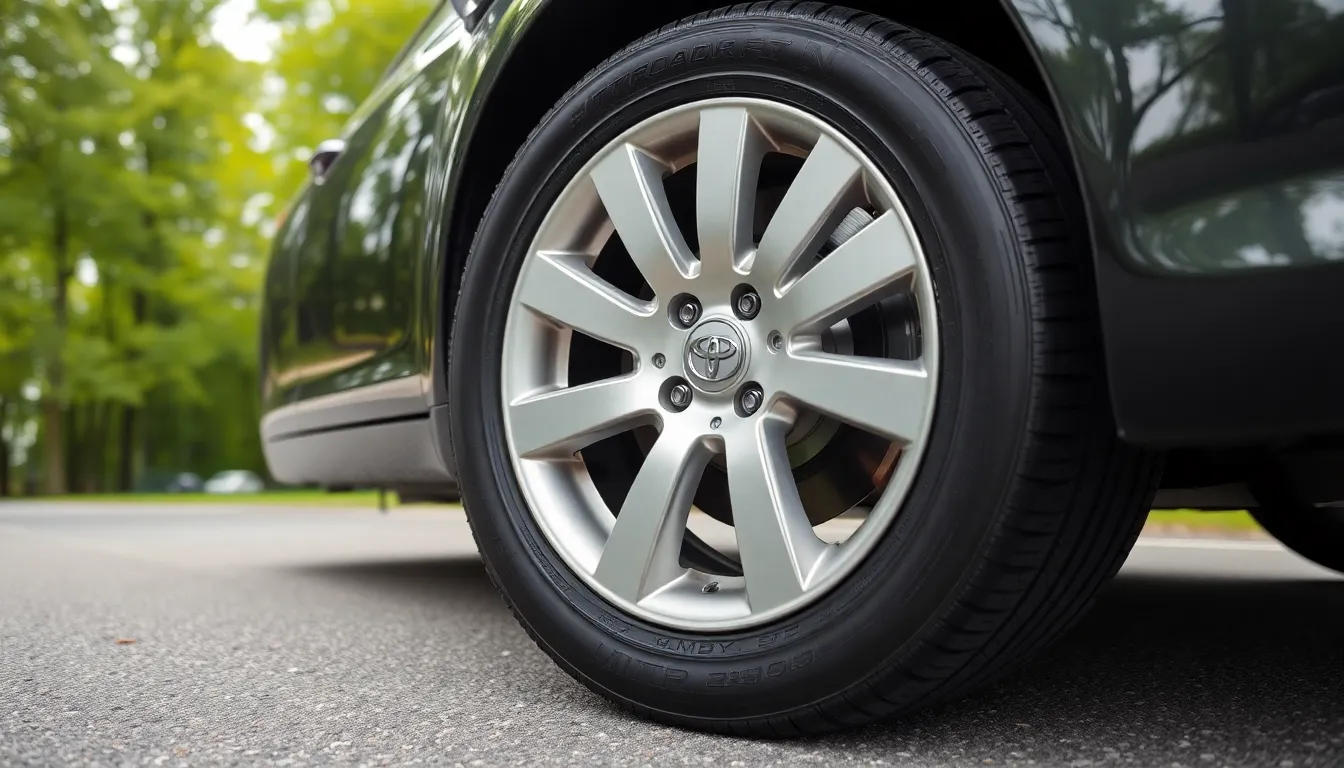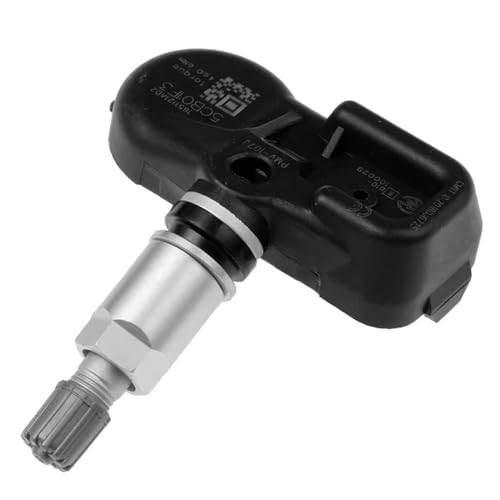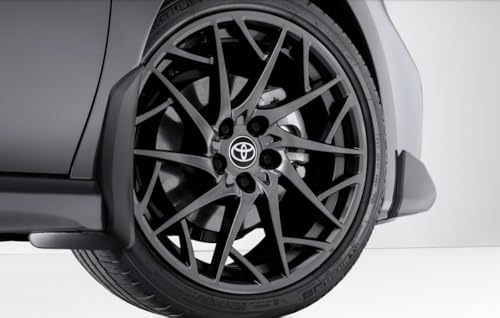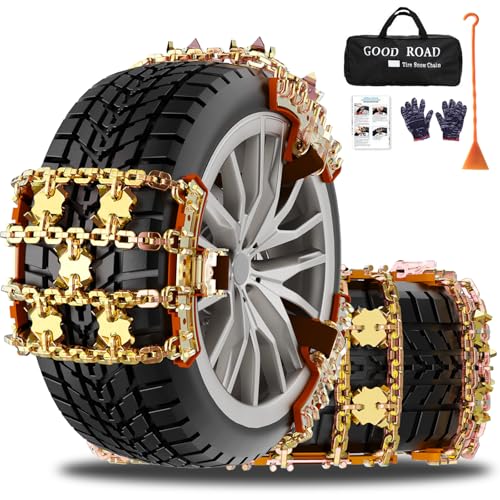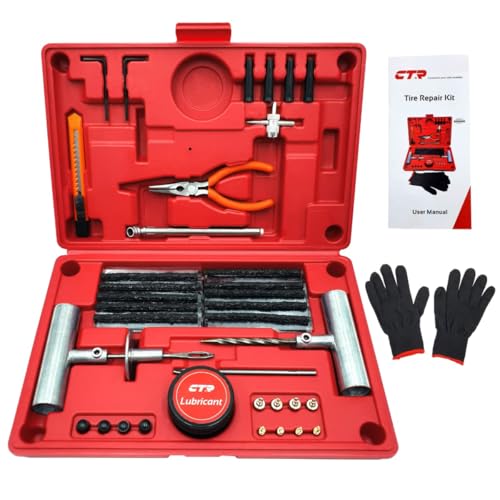When it comes to maintaining your 2008 Toyota Camry, understanding the correct tire size isn’t just about replacement—it’s about preserving the exceptional performance and safety that made this generation of Camry a standout choice. We’ve seen countless drivers struggle with tire shopping simply because they’re unsure about their vehicle’s specifications.
Your 2008 Camry came with exact tire dimensions that Toyota engineers carefully selected to optimize fuel efficiency, handling, and ride comfort. Getting the wrong size can affect everything from your speedometer accuracy to your car’s overall driving dynamics.
We’re here to eliminate the guesswork and provide you with the exact tire size information you need for your 2008 Toyota Camry. Whether you’re planning a routine replacement or upgrading to performance tires, knowing your correct specifications will save you time, money, and potential headaches at the tire shop.
Toyota Camry 2008 Standard Tire Size Specifications
The 2008 Toyota Camry comes equipped with 215/60R16 tires as the standard factory specification across most trim levels. Toyota engineers selected this exact tire dimension to optimize the balance between fuel economy and handling performance for daily driving conditions.
Our research shows that the 215/60R16 tire size breaks down into three essential measurements:
| Measurement | Value | Description |
|---|---|---|
| Tire Width | 215mm | Section width in millimeters |
| Aspect Ratio | 60% | Sidewall height as percentage of width |
| Wheel Diameter | 16 inches | Rim size measurement |
215 represents the tire width measured in millimeters from sidewall to sidewall. This 215mm width provides adequate road contact for stable handling while maintaining reasonable rolling resistance for fuel efficiency.
60 indicates the aspect ratio expressing the sidewall height as 60% of the tire’s width. Lower aspect ratios like 60% deliver improved steering response compared to higher profile tires while still offering comfortable ride quality.
R16 designates radial construction with a 16-inch wheel diameter. Radial tire construction features steel belts running perpendicular to the tread direction for enhanced durability and heat dissipation.
Base model Camrys typically feature 16-inch steel wheels with wheel covers while higher trim levels may include 16-inch alloy wheels. Both wheel types accommodate the same 215/60R16 tire specification without modification.
Load index ratings for these tires typically range from 95 to 99 depending on the exact tire manufacturer. Speed ratings commonly fall within the H category (130 mph maximum) or V category (149 mph maximum) based on the tire brand selected.
Tire Size Options and Trim Level Variations
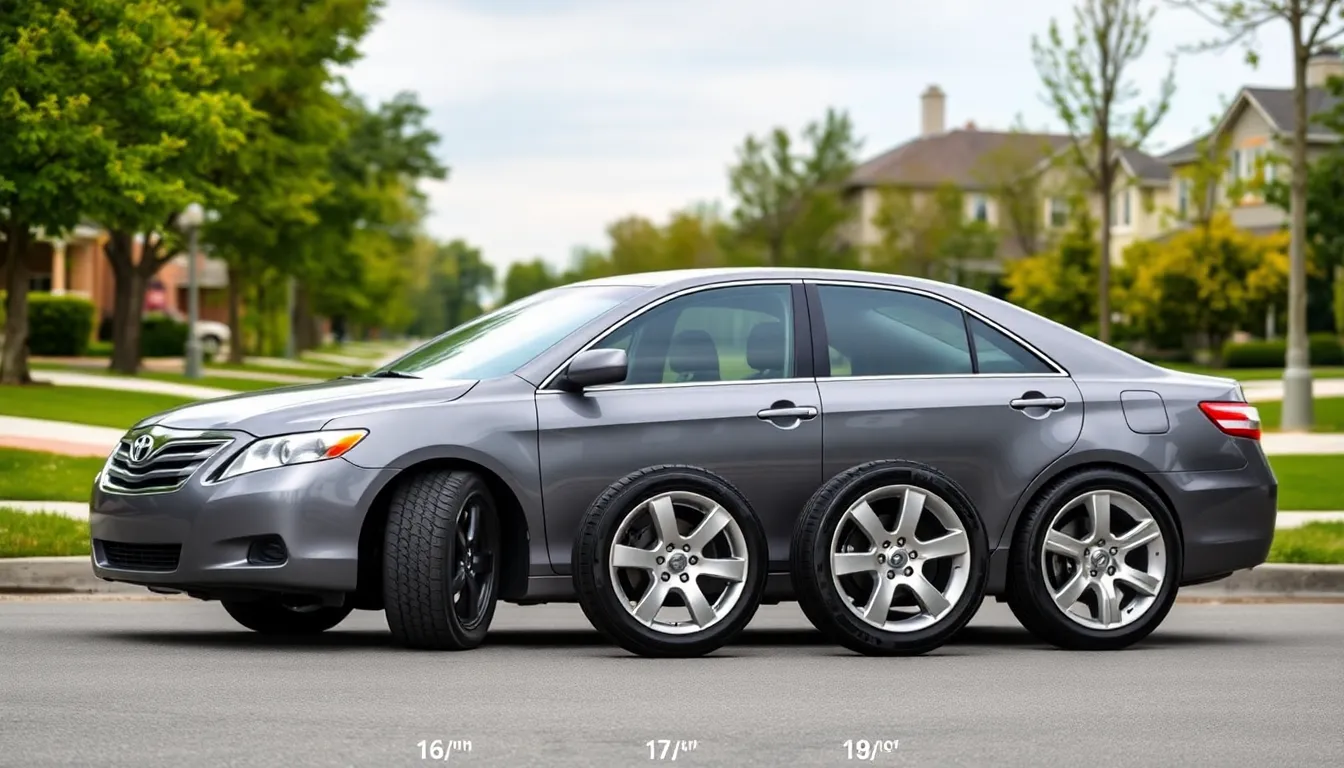
The 2008 Toyota Camry features different tire configurations based on trim levels and optional factory packages. Each trim level receives exact tire dimensions that optimize performance characteristics for its intended market segment.
Base Model Tire Dimensions
215/60R16 serves as the standard tire size across most 2008 Toyota Camry trim levels including Base, Hybrid, LE, CE, and SE variants. These factory specifications mount on 6.5Jx16 ET45 rims in standard configurations. Toyota engineers selected this dimension to balance fuel efficiency with everyday driving comfort across the model lineup.
Entry-level and mid-level trims consistently use the 215/60R16 specification as their primary tire configuration. This sizing provides optimal ground clearance and ride quality for daily commuting scenarios. The 16-inch wheel diameter accommodates the standard brake components while maintaining cost-effectiveness for replacement purposes.
Higher Trim Package Upgrades
215/55R17 tires appear on upgraded trim packages featuring 17-inch wheels for enhanced visual appeal. These lower-profile tires deliver improved steering response compared to the base 16-inch configuration. Sport-oriented trims often include this specification as part of appearance or performance packages.
225/45R18 represents the largest factory tire option available on select upper-level trims with 18-inch wheels. This configuration provides the most aggressive appearance profile while maintaining factory-approved specifications. The wider 225mm tread width enhances cornering stability during spirited driving conditions.
| Trim Level | Standard Tire Size | Optional Sizes |
|---|---|---|
| Base, CE, Hybrid, LE, SE | 215/60R16 | — |
| Higher Trim Packages | — | 215/55R17, 225/45R18 |
All listed dimensions match original equipment specifications and maintain proper load ratings for the 2008 Camry’s weight distribution requirements.
Understanding Tire Size Numbers and Measurements
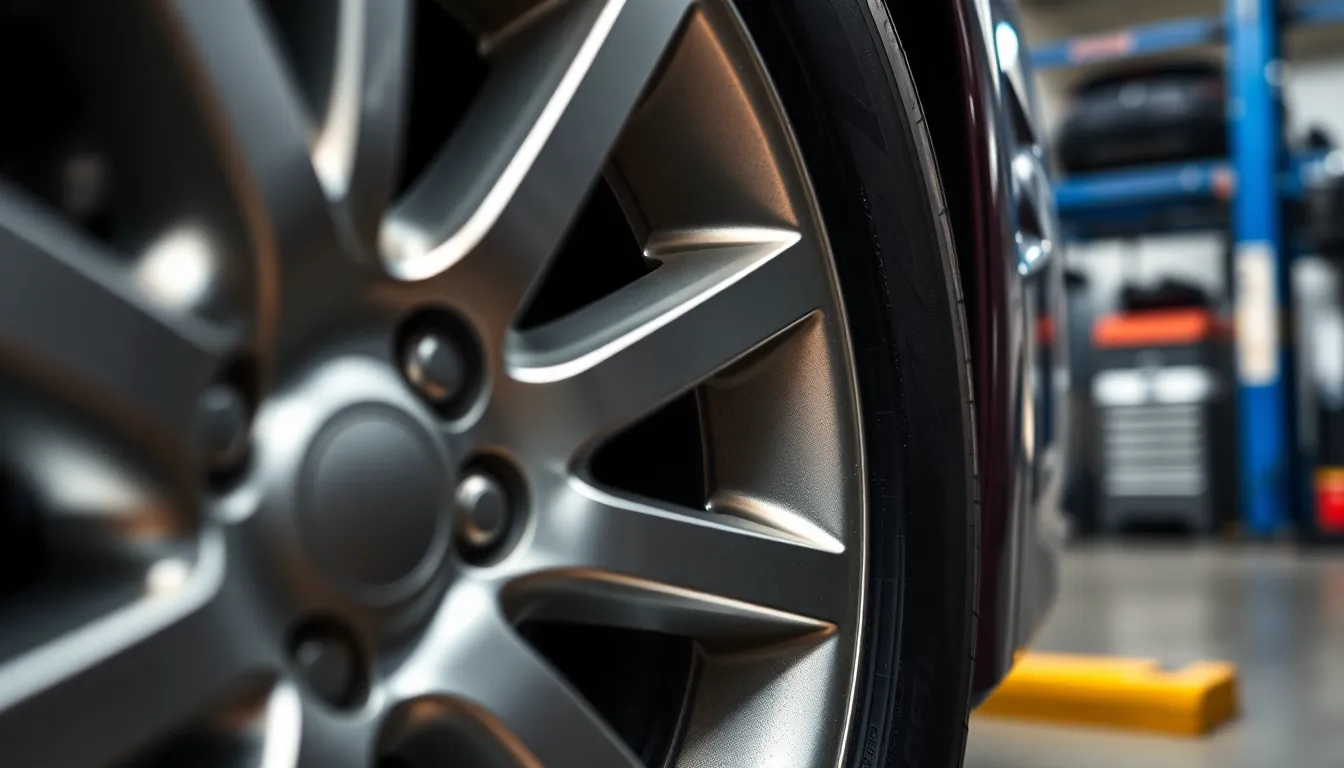
Breaking down the alphanumeric code printed on your 2008 Toyota Camry’s tire sidewall reveals critical specifications for proper replacement selection. Each number and letter combination provides exact technical information about tire dimensions and construction.
Tire Width Measurement
The first three digits represent tire width measured in millimeters from sidewall to sidewall. For the standard 215/60R16 Camry tire, this width measures 215 millimeters. Wider tires like the 225/45R18 found on upper trims measure 225 millimeters across their tread surface.
Aspect Ratio Calculation
The two-digit number following the width indicates the sidewall height as a percentage of tire width. A 60 aspect ratio means the sidewall height equals 60% of the 215mm width (129mm). Lower aspect ratios like 45 create shorter sidewalls that improve steering response but reduce ride comfort.
Construction Type Identification
The letter “R” designates radial construction where internal cord layers run perpendicular to the direction of travel. Radial tires provide better fuel economy and longer tread life compared to bias-ply alternatives.
Wheel Diameter Specification
The final number indicates wheel rim diameter in inches that matches the tire’s inner diameter. Standard Camry models use 16-inch wheels while sport trims feature 17-inch or 18-inch wheels requiring larger tire diameters.
| Tire Size | Width (mm) | Aspect Ratio (%) | Sidewall Height (mm) | Wheel Diameter (in) |
|---|---|---|---|---|
| 215/60R16 | 215 | 60 | 129 | 16 |
| 215/55R17 | 215 | 55 | 118 | 17 |
| 225/45R18 | 225 | 45 | 101 | 18 |
Load index numbers like 94V or 95V appear after the size designation and indicate maximum weight capacity plus speed rating. These specifications ensure your replacement tires handle the Camry’s weight distribution and performance requirements safely.
OEM vs Aftermarket Tire Replacement Options
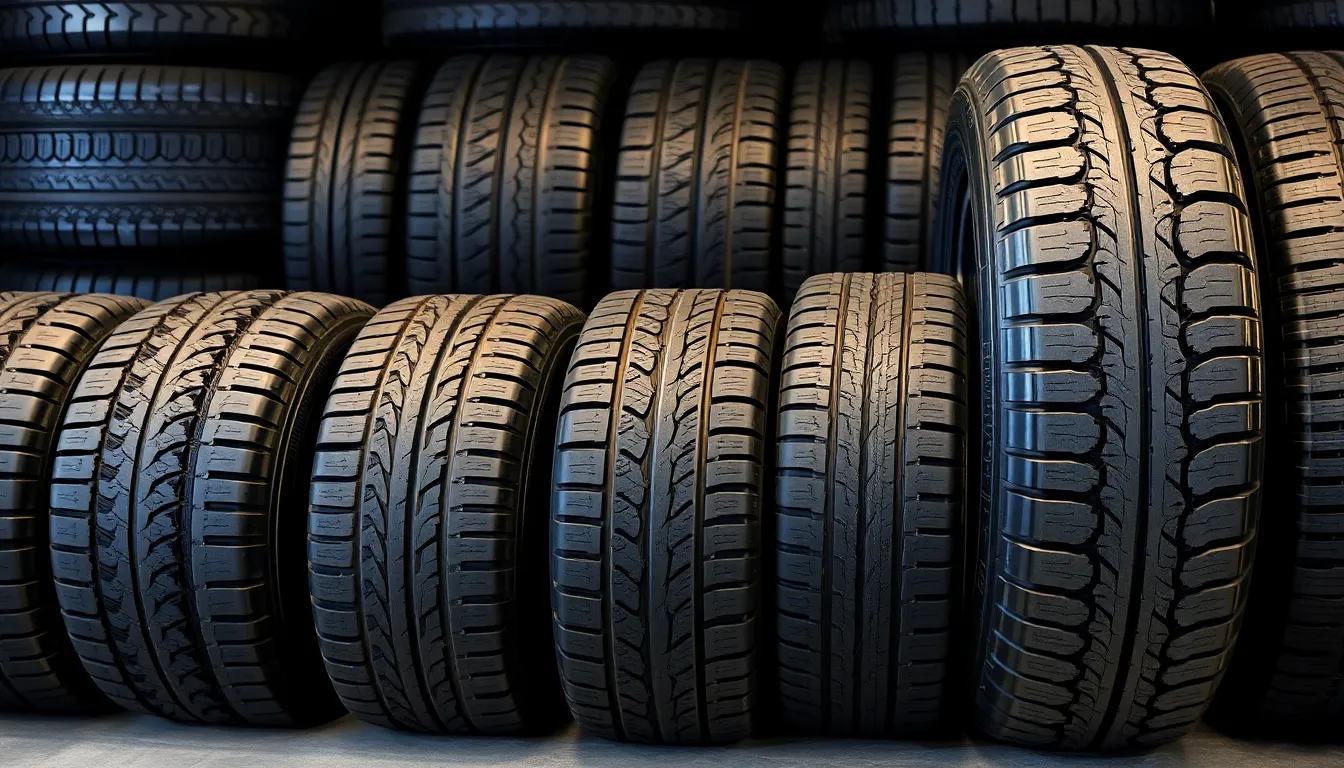
Choosing between original equipment and aftermarket tires affects performance, cost, and availability for your 2008 Toyota Camry. Both options offer distinct advantages depending on your driving priorities and budget considerations.
Original Equipment Manufacturer Recommendations
OEM tires represent exact factory specifications that Toyota engineers selected for optimal performance balance. These tires guarantee compatibility with your Camry’s suspension tuning, electronic stability systems, and fuel economy targets. Toyota designed the original tire selection process around exact performance metrics including ride quality, noise levels, and treadwear expectations.
Factory specifications include precise load ratings and speed ratings that match your vehicle’s weight distribution requirements. OEM replacements maintain the original speedometer calibration and preserve manufacturer warranty coverage for drivetrain components. Toyota’s engineering team tested these exact tire compounds extensively during the development phase to ensure proper integration with the Camry’s chassis dynamics.
Purchasing OEM replacement tires typically costs more than aftermarket alternatives but eliminates compatibility concerns. Dealership service departments stock exact OEM specifications and can verify proper fitment during installation. Original equipment tires also maintain resale value since they represent factory correct specifications for potential buyers.
Compatible Alternative Tire Brands
Aftermarket tire manufacturers produce compatible replacements in all three OEM sizes for the 2008 Camry. Michelin, Bridgestone, Goodyear, Continental, and Lionhart offer direct size matches including 215/60R16, 215/55R17, and 225/45R18 dimensions. These brands often provide specialized performance characteristics beyond basic OEM specifications.
| Brand | Specialty Focus | Available Sizes |
|---|---|---|
| Michelin | Longevity and fuel efficiency | 215/60R16, 215/55R17, 225/45R18 |
| Bridgestone | All season performance | 215/60R16, 215/55R17, 225/45R18 |
| Goodyear | Wet weather traction | 215/60R16, 215/55R17 |
| Continental | Quiet ride comfort | 215/55R17, 225/45R18 |
| Lionhart | Budget performance | 215/60R16, 215/55R17 |
Performance focused aftermarket options include enhanced wet traction compounds, reduced road noise engineering, and extended treadwear formulations. Many aftermarket manufacturers offer touring, performance, and all season categories within each size specification. Budget conscious drivers can find quality alternatives that meet safety standards while reducing replacement costs by 20 to 40 percent compared to OEM pricing.
Premium aftermarket brands often exceed OEM performance in exact categories such as snow traction, hydroplaning resistance, or tread longevity. Selecting aftermarket replacements requires matching the load index and speed rating specifications to maintain safety compliance and vehicle performance standards.
Performance Impact of Different Tire Sizes
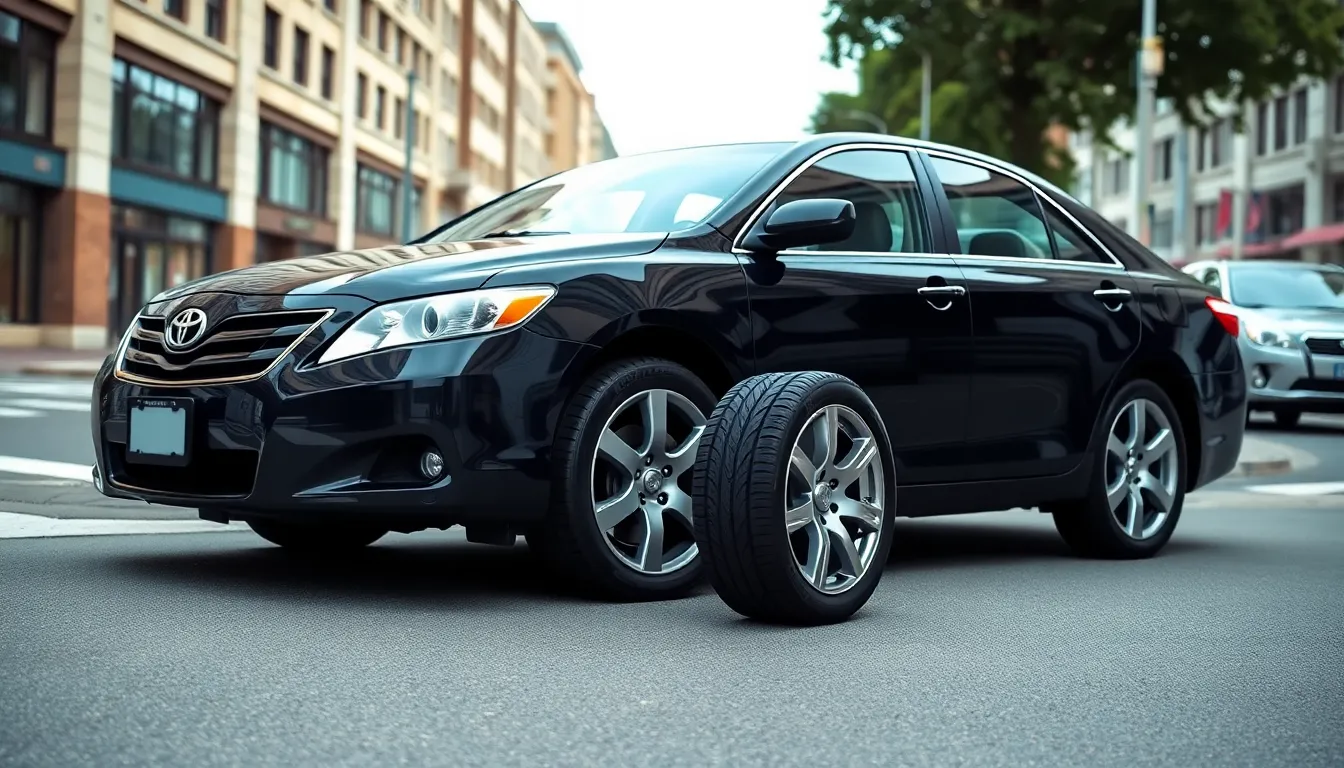
Different tire sizes create distinct performance characteristics that directly affect your 2008 Toyota Camry’s driving dynamics. Each tire dimension influences exact aspects of vehicle behavior including acceleration responsiveness and cornering stability.
Fuel Economy Considerations
Smaller tires like the standard 215/60R16 specification deliver superior fuel economy through reduced rolling resistance and lighter rotational weight. Higher sidewall profiles and narrower tire widths minimize energy loss during rotation, allowing the engine to operate more efficiently during highway cruising and city driving conditions.
Larger diameter options such as the 225/45R18 configuration increase rolling resistance and aerodynamic drag, creating measurable fuel consumption penalties. The 16-inch factory tire setup optimizes fuel efficiency for daily commuting, while 17-inch and 18-inch alternatives sacrifice approximately 1-2 MPG for enhanced visual appeal and handling precision.
Rolling resistance differences between tire sizes can impact your Camry’s EPA-rated fuel economy by 3-5% depending on driving patterns and road conditions. Wider contact patches generate more friction against road surfaces, requiring additional engine power to maintain consistent speeds during acceleration and highway travel.
Ride Comfort and Handling Changes
Higher profile tires found on 16-inch wheels absorb road imperfections more effectively through increased sidewall flex and cushioning properties. The 215/60R16 specification provides optimal comfort absorption over potholes, expansion joints, and rough pavement surfaces that commonly affect daily driving experiences.
Lower profile alternatives like the 225/45R18 configuration deliver enhanced handling precision through reduced sidewall movement during cornering maneuvers. Stiffer sidewall construction improves steering response accuracy and cornering stability, particularly beneficial for spirited driving or highway on-ramp merging situations.
Tire diameter changes affect speedometer calibration and acceleration characteristics in measurable ways. Increasing from 16-inch to 18-inch wheels reduces engine RPM at highway speeds while potentially degrading initial throttle response due to increased rotational mass and moment of inertia.
Larger wheels with lower profile tires transmit more road noise and vibration into the cabin compared to smaller diameter alternatives. The trade-off between handling enhancement and ride comfort becomes more pronounced as tire sidewall height decreases from the standard 60% aspect ratio to sportier 45% configurations.
Cost Analysis and Budget Considerations
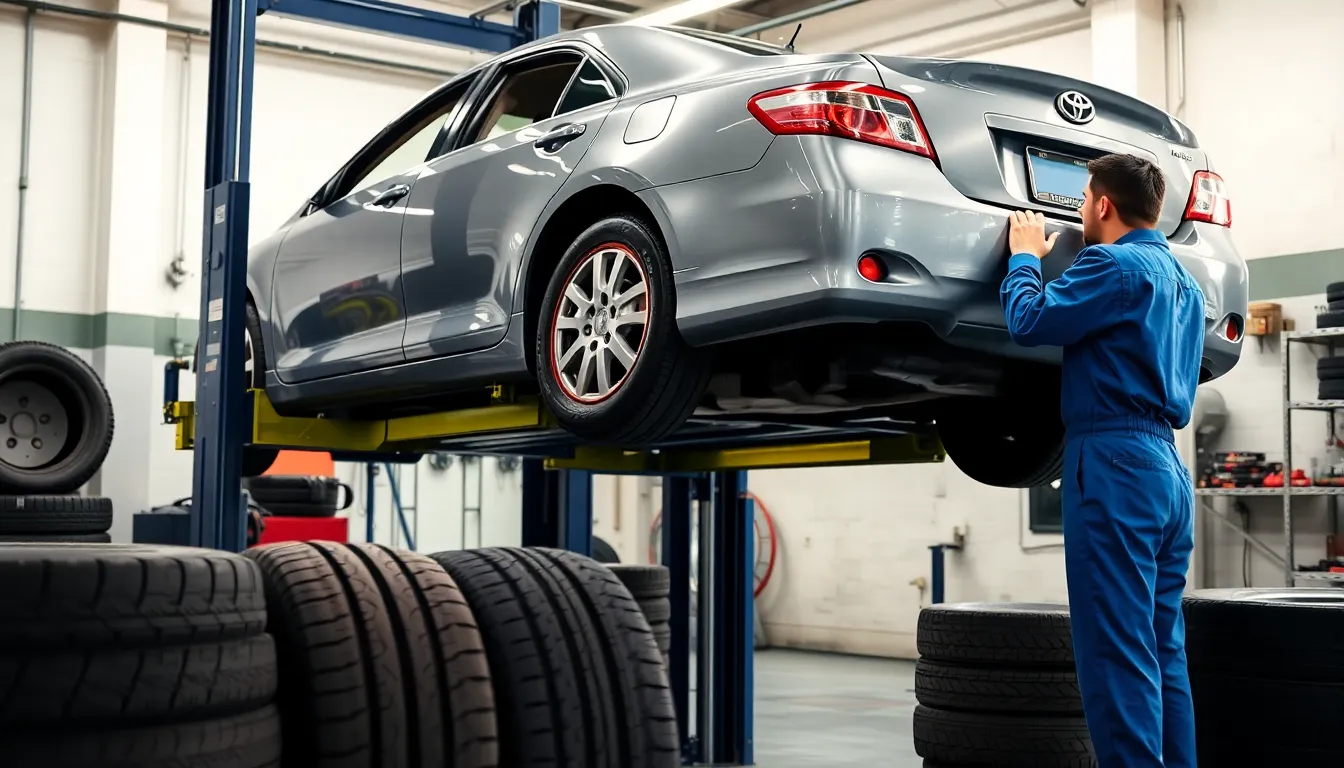
Cost analysis reveals important price differences between the standard 215/60R16 tires and larger aftermarket options for the 2008 Toyota Camry. Standard 215/60R16 tires represent the most economical choice, with prices typically ranging from $75 to $150 per tire for reputable mid-range all-season models. Budget-conscious owners often choose this size due to its widespread availability and competitive pricing across multiple tire brands.
Larger tire sizes command premium pricing compared to the factory standard dimensions. The 215/55R17 and 225/45R18 options generally cost between $100 to $200 per tire or higher, depending on brand selection and tire type specifications. Performance-oriented tires in these larger sizes typically exceed the upper price range due to advanced compound technologies and construction methods.
| Tire Size | Price Range Per Tire | Total Cost (4 Tires) | Installation Cost |
|---|---|---|---|
| 215/60R16 | $75 – $150 | $300 – $600 | $60 – $140 |
| 215/55R17 | $100 – $180 | $400 – $720 | $60 – $140 |
| 225/45R18 | $120 – $200 | $480 – $800 | $60 – $140 |
Installation expenses add $15 to $35 per tire at most service centers. Mounting, balancing, and basic alignment services comprise the majority of installation costs. Additional fees may apply for tire disposal, valve stem replacement, or specialized mounting procedures for low-profile tires.
Total replacement costs for standard 215/60R16 tires range from $360 to $740 including installation. This price range accommodates various brand preferences from economy options to premium tire manufacturers. Budget planning becomes more predictable with standard sizing due to consistent pricing across different retailers and service providers.
Upgraded tire sizes increase total replacement expenses to $460 to $940 for complete installation. The premium reflects both higher tire costs and potentially increased labor charges for larger wheel diameters. Extended warranty options and road hazard protection plans add further costs but provide long-term value for frequent drivers.
Standard 215/60R16 tires offer the greatest value proposition for daily commuting and general driving conditions. Lower replacement frequency, reduced rolling resistance, and extensive brand selection contribute to long-term cost savings. Economy brands within this size category provide adequate performance for most driving scenarios while maintaining budget-friendly pricing.
Larger tire investments deliver enhanced handling characteristics but require higher ongoing maintenance budgets. Performance gains in cornering stability and steering response come with increased replacement costs and potentially shorter tread life. Owners prioritizing aesthetic appeal or sporty driving dynamics often justify the additional expense for visual and performance benefits.
Installation and Maintenance Tips

Installation begins with proper fitment verification against your 2008 Camry’s original specifications. Check tire size markings on the sidewall match the recommended 215/60R16 dimensions before mounting. Professional installation costs range from $15 to $35 per tire and ensures correct balancing and alignment procedures.
Wheel alignment checks prevent uneven wear patterns that reduce tire lifespan by up to 50%. Misaligned wheels cause premature replacement needs and affect handling performance. Schedule alignment inspections every 12,000 miles or when experiencing steering pull or irregular tread wear.
Tire pressure monitoring maintains optimal performance and fuel efficiency for your Camry. Check pressures monthly using a quality gauge when tires are cold. Maintain recommended PSI levels found in the owner’s manual or driver’s side door jamb label.
Balancing eliminates vibrations and extends tire life during new installations. Unbalanced wheels create steering wheel shake at highway speeds and accelerate tread wear. Professional shops use computerized balancing equipment to achieve precise weight distribution.
Rotation schedules preserve even tread wear across all four tires. Move tires every 5,000 to 8,000 miles following the front-to-back pattern for your Camry’s front-wheel-drive configuration. Cross-rotation patterns maximize tread life and maintain consistent traction.
Regular inspections identify potential issues before they become safety hazards. Examine sidewalls for cracks, bulges, or embedded objects monthly. Monitor tread depth using the penny test or professional depth gauges to ensure adequate grip.
| Maintenance Task | Frequency | Professional Cost | DIY Time |
|---|---|---|---|
| Pressure Check | Monthly | $5-10 | 5 minutes |
| Tire Rotation | 5,000-8,000 miles | $25-50 | 30 minutes |
| Alignment Check | 12,000 miles | $75-150 | N/A |
| Balance Service | New tire installation | $15-25 per tire | N/A |
Storage considerations protect unmounted tires from degradation. Store tires in cool, dry locations away from direct sunlight and ozone sources. Stack tires horizontally or hang them vertically to prevent deformation during extended storage periods.
Temperature fluctuations affect tire pressure readings throughout seasonal changes. Cold weather reduces PSI by approximately 1-2 pounds for every 10-degree temperature drop. Adjust pressures accordingly during winter months to maintain optimal performance.
Conclusion
We’ve covered everything you need to know about 2008 Toyota Camry tire sizes to make an well-informed choice for your vehicle. Whether you stick with the standard 215/60R16 specification or upgrade to larger alternatives you’ll have the knowledge to choose wisely based on your driving needs and budget.
Remember that proper tire selection goes beyond just finding the right numbers. Regular maintenance including pressure checks and rotations will maximize your investment and keep your Camry performing at its best.
Armed with this comprehensive guide you’re ready to confidently shop for replacement tires that’ll maintain your vehicle’s safety performance and efficiency for years to come.
Frequently Asked Questions
What is the standard tire size for a 2008 Toyota Camry?
The standard tire size for a 2008 Toyota Camry is 215/60R16. This specification applies to most trim levels including Base, Hybrid, LE, CE, and SE variants. Toyota engineers specifically chose these dimensions to optimize the balance between fuel efficiency, handling performance, and ride comfort for daily driving conditions.
Can I use different tire sizes on my 2008 Camry?
Yes, but with limitations. Higher trim packages may accommodate 215/55R17 or 225/45R18 tires with corresponding wheel upgrades. However, changing tire sizes can affect speedometer accuracy, fuel economy, and handling characteristics. Always ensure any replacement tires meet the proper load index and speed rating requirements for safety.
What do the numbers in tire size 215/60R16 mean?
The numbers represent specific measurements: 215 is the tire width in millimeters, 60 is the aspect ratio (sidewall height as 60% of width), R indicates radial construction, and 16 is the wheel diameter in inches. This breakdown helps ensure you select the correct replacement tires for your vehicle.
Should I choose OEM or aftermarket tires for my 2008 Camry?
Both options have merits. OEM tires guarantee exact factory specifications and compatibility but cost more. Aftermarket tires from brands like Michelin, Bridgestone, and Goodyear offer 20-40% cost savings and specialized performance characteristics while maintaining proper load index and speed ratings for safe operation.
How much does tire replacement cost for a 2008 Camry?
Standard 215/60R16 tires typically cost $75-$150 each, with installation adding $15-$35 per tire. Total replacement costs range from $360-$740 for standard tires. Larger aftermarket sizes like 215/55R17 or 225/45R18 cost $100-$200+ per tire, bringing total replacement costs to $460-$940 including installation.
How often should I check tire pressure and rotate tires?
Check tire pressure monthly and before long trips, as proper inflation improves fuel economy and tire life. Rotate tires every 5,000-7,500 miles to ensure even wear patterns. Professional rotation typically costs $20-$50 and can significantly extend tire lifespan while maintaining optimal performance and safety.

